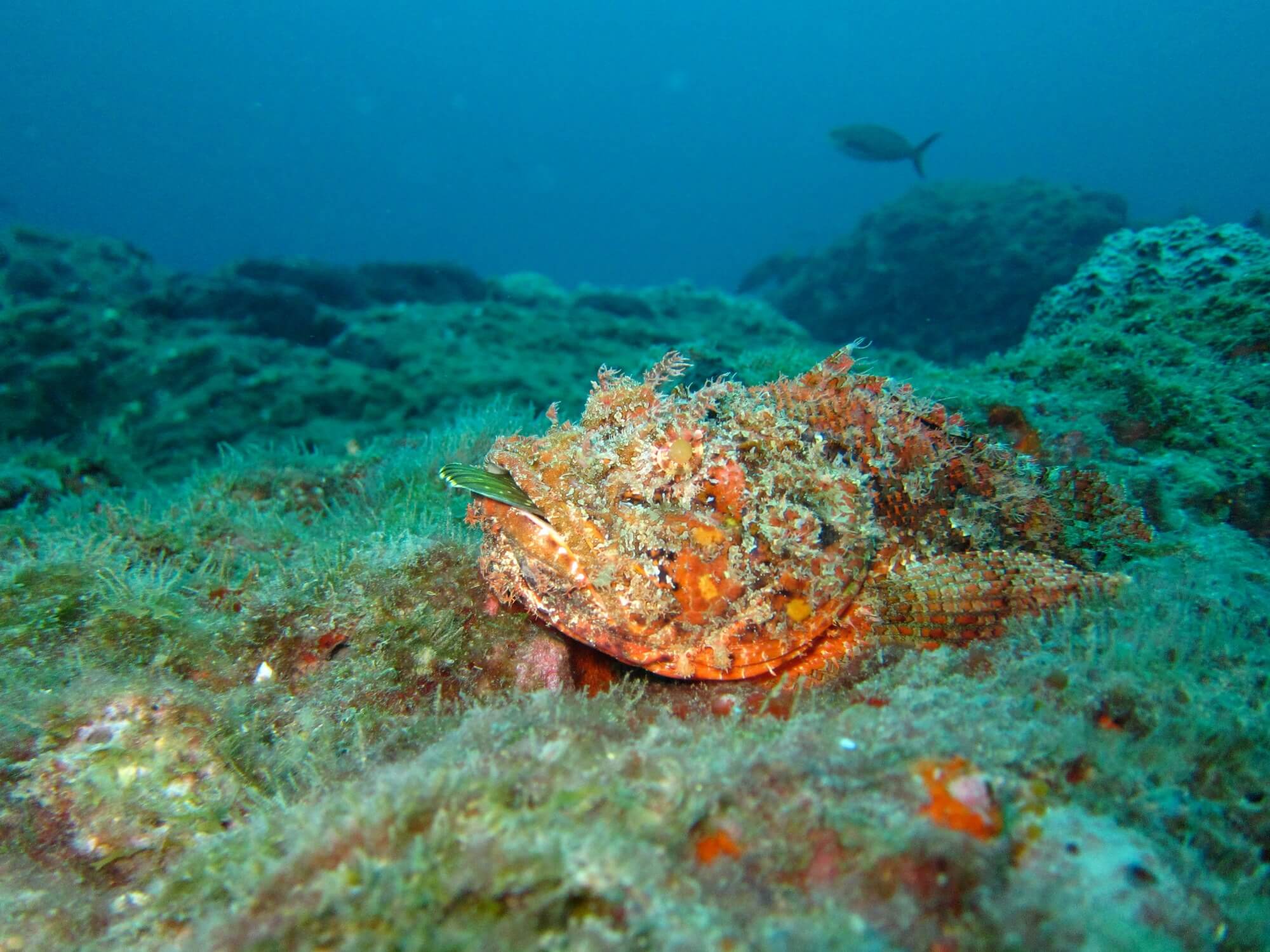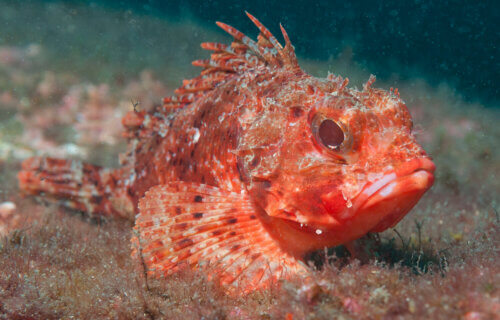REGENSBURG, Germany — It looks as frightening as it sounds, but scientists say the venomous scorpionfish may possess a powerful health benefit for humans. A new study shows the potential for a protein derived from scorpionfish to treat multidrug-resistant bacterial infections in cystic fibrosis patients.
These infections are common in those with cystic fibrosis due to a genetic mutation which causes a buildup of thick mucus in the lungs.
The study focused on bactericidal/permeability-increasing protein (BPI) — a protein naturally produced by humans and other organisms — that combats gram-negative bacteria. This type of bacteria have a more complex “suit” with an outer layer that’s hard for things like antibiotics to penetrate. That makes them generally more resistant to drugs and also harder to kill. Gram-negative bacteria are tough to deal with not just when it comes to the immune system, but for doctors trying to treat infections.
However, many cystic fibrosis patients produce antibodies that render BPI ineffective. Scientists set out to find alternative sources of the protein that could bypass these antibodies.
“In these cases, patients need continuous antibiotic treatment, which often leads to the development of multiple-drug resistance,” says Jonas Holzinger, biologist at the Institute of Clinical Microbiology and Hygiene, University Hospital Regensburg, Germany, in a statement. “In consequence, therapeutic options are drastically limited and there is an urgent need for new approaches.”

Researchers discovered the BPI protein from the scorpionfish was found to evade the immune responses of cystic fibrosis patients and showed significant efficacy against gram-negative bacteria.
“When we compared scorpionfish BPI to those of other organisms, we discovered its exceptional activity against Pseudomonas aeruginosa,” says Holzinger.
P. aeruginosa is a gram-negative, rod-shaped bacterium commonly found in various environments, including soil, water, and even on human skin. It is a highly adaptable microorganism that can thrive in a wide range of conditions, which makes it particularly hardy and sometimes difficult to treat. This bacterium is also an opportunistic pathogen, which means it is capable of causing infections, particularly in people with compromised immune systems or other underlying health conditions.
Holzinger says the scorpionfish protein worked “impressively fast,” killing the bacteria within one to three hours.
Unlike common antibiotics, the scorpionfish-derived BPI targets the bacteria’s cell wall, making it an especially potent agent against infections. Before it can be recommended as a treatment, though, it must be tested in animal models of cystic fibrosis to confirm its efficacy and safety.
“If proven effective in animals and people, non-human BPI may provide new therapeutic options for difficult-to-treat bacterial infections,” says Dr. Sigrid Bülow, specialist for microbiology at the Institute of Clinical Microbiology and Hygiene, University Hospital Regensburg. “Developing non-human BPI therapies may benefit not only patients with cystic fibrosis but others impacted by severe infections with multiple drug-resistant Gram-negative bacteria.”
The study was published in the journal eLife.
